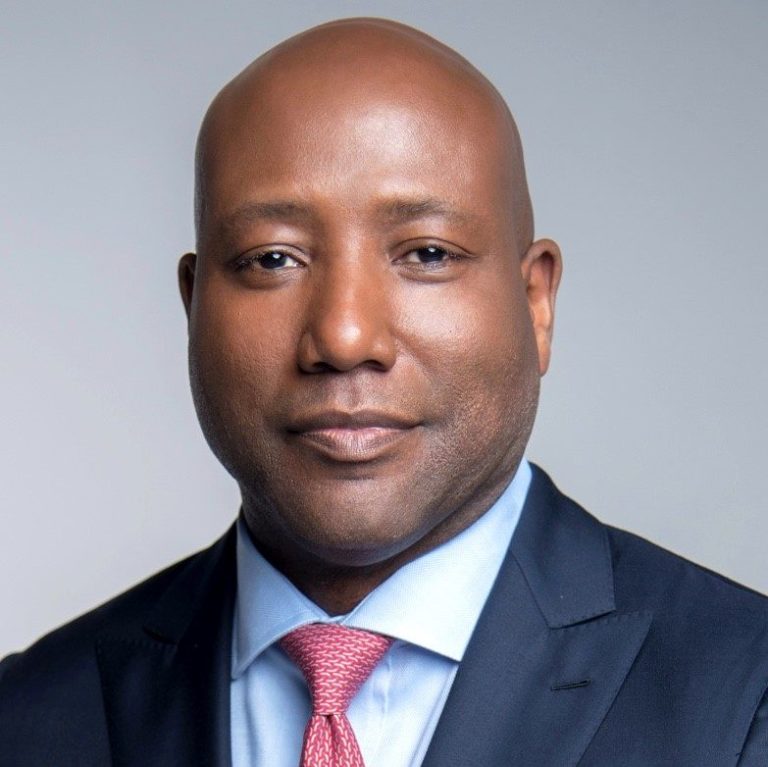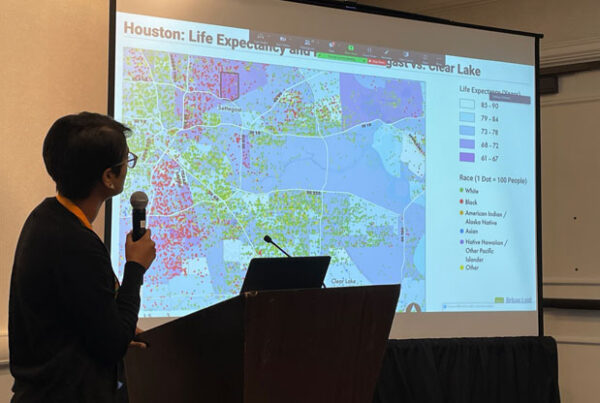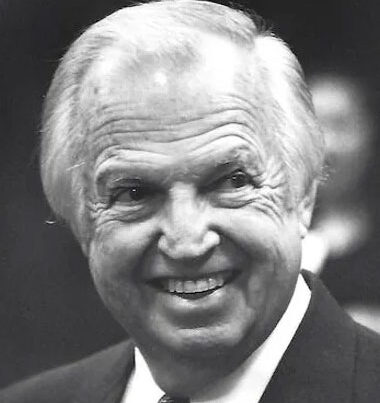
Faron A. Hill, chair of the ULI Foundation.
Faron A. Hill, president of Peregrine Oak, was named chair of the ULI Foundation in July. Hill has been a member of the Institute since 2004 and has served in various leadership roles within the organization. He currently serves on the Global Board of Directors, as a ULI Governing Trustee, and within the Technology and Real Estate Product Council Leadership.
He succeeds Douglas D. Abbey as ULI Foundation chair. The ULI Foundation Board provides leadership for the Foundation, which serves as the philanthropic source of funding for ULI through major gifts and annual giving that support the Institute’s mission-driven programs, activities, and services.
What drives your interest in working with the ULI Foundation?
The future of ULI, the future of the Foundation, and the global impact the organization has on the industry are the primary drivers of my interest. Overall, ULI is uniquely positioned to offer solutions to the land use challenges facing our communities worldwide.
What are your priorities for the ULI Foundation?
Of course, the top priority is to continue the support of ULI and its mission. I believe increasing awareness of the Foundation within the membership and the district council network will strengthen the Foundation’s ability to support the Institute’s greater mission. If we do that, then we will increase philanthropic participation among individual members.
As an organization within the ULI network, it will be imperative that we continue to make progress on the milestones outlined in our most recent strategic plan. As chairman of the Foundation, I have the unique opportunity to support and work directly with the phenomenal group of professionals engaged in this effort daily.
What takeaways from your previous experience as a leader within ULI will you apply as ULI Foundation chair?
The leadership lessons and takeaways are too numerous to list. However, the membership, staff, and anticipated impact of each decision will be front of mind. I benefit from having served at the district council level, the national level, and in the product council universe. The knowledge and experience of how they are interconnected will be beneficial in this role.
As the new ULIF chair, are there specific goals you look forward to achieving during your term?
Yes! Again, awareness and participation are the two key factors. The Foundation has existed for more than half a century. The planning and decisions that we are undertaking today will ensure the success of the Foundation and the Institute for the next 50 years and beyond. With this in mind, I look forward to encouraging a higher level of awareness of the Foundation through the individual participation of our members.
There are many ways to give. I was recently a participant for an Advisory Services panel in Nashville to determine how to rebuild after the Christmas Day bombing that occurred in 2020. It was a great way to connect with other members and help that community. I was also a juror for the Hines Student Competition and heard firsthand the great ideas presented.
What is your approach to philanthropy?
It’s twofold: I want to support the causes and organizations that can make a visible impact on society and to also support the organizations that have supported me. Giving can be personal resources of treasure, talent, and time. ULI is unique in that it offers the opportunity to be able to check all those boxes. Whether your passion is climate change and decarbonization, affordable housing, or diversity and inclusion, the organization is large enough to offer meaningful opportunities for members to give back where it matters the most to them.
Is there a certain ULI program that you are particularly passionate about?
University Connections and Advisory Services panels. There is a misunderstanding that the industry lacks talent. There is no shortage of talent in the industry; what we have is a shortage of available opportunities for the available talent. The University Connections program provides an opportunity to bridge the gap between the industry and certain underrepresented groups. This includes established professionals who are early in their careers. ULI’s educational pathways and the access that they provide to our member leaders is one of our greatest resources. This program is a fantastic opportunity to share those tools and help shape early talent.
Advisory Services panels are important to me as well. This program is unique to ULI. The land use industry is ultimately a quality-of-life business. Advisory Services panels are an opportunity to affect the quality of life in cities around the world.



